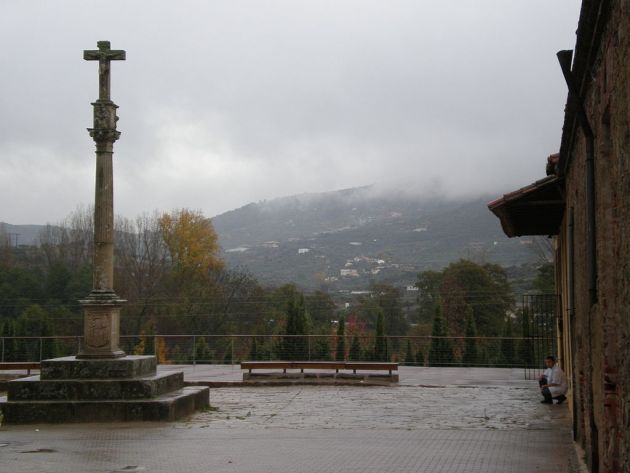Spanish hamlet "Kill Jews Fort" to vote on name change

MADRID, May 19 (Reuters) - The village of Castrillo Matajudios in northern Spain will vote on Sunday on whether to change the name it has had for 400 years and purge a vestige of the religious persecution meted out by the Roman Catholic Inquisition.
The name in English means Kill Jews Fort.
Village Mayor Lorenzo Rodriguez has led the drive to rename it Castrillo Mota Judios, or Hill of Jews.
"We've been labelled as being a village where Jewish people are killed, accused of being anti-semitic. The reality is this is a village descended from a Jewish community," Rodriguez said.
The village of ancient stone houses surrounded by fields near the city of Burgos is home to 56 mostly elderly people. They will cast their ballot on the same day as European-wide elections.
Rodriguez's campaign also takes place as the Spanish government is trying to make amends for religious persecution during the Inquisition, proposing a law to grant nationality to descendants of Sephardic Jews driven out of Spain.
The town's name dates to the period after Catholic monarchs King Ferdinand and Queen Isabella ordered the expulsion of Jews in 1492.
In the Middle Ages, Jews, Muslims and Christians co-existed in cities throughout what is now Spain, with varying degrees of tolerance and tension. That ended with the expulsion and forced conversion of Jews and Muslims in the 1400s.
Last month an archaeologist, Angel Palomino, gave villagers a talk on the probable history of the name. Documents show it was called Mota Judios in 1035 but by 1623 appeared in documents as Matajudios. Its Jewish residents had either left or converted, changing the name to appear to be loyal Catholics.
The townhall will make a final decision after evaluating the vote along with more than 300 letters and written comments on the proposal, many from people with family connections to the hamlet.
Fernando Vara de Rey, who heads institutional relations at the Madrid-based Jewish association Centro Sefarad, welcomed the possible change.
"It was an unattractive name that didn't please anyone," he said.
But he said vestiges of Spain's historical intolerance to Jews remain in places like the northwestern town of Leon, where an old Spanish expression "killing Jews" was used to mean drinking wine with lemonade during Easter week.
"Let's hope this change in attitude finishes up eliminating such unfortuate expressions," he said.
Jewish communities around the world are awaiting details of the documents they will have to produce to prove Sephardic ancestry if Spain's parliament passes the bill proposed by the government to allow them citizenship.
Signs of the historical persecution of Muslim communities are also present in Spain. Socialists in the regional parliament of Aragon in February proposed modifying the region's coat of arms to remove the image of four severed heads of Moors, the Muslim rulers of much of Spain in medieval times.
In southeast Spain, there is a village of 400 residents whose name Valle de Matamoros means Valley of Moor Killing.
Riay Tatary Bakry, president of the Union of Islamic Communities in Spain, said he thought over time people would become more aware about offensive names and symbols.
"I prefer any name that could encourage racism or xenophobia to be avoided," he said. "We need to start drawing people's attention to this."